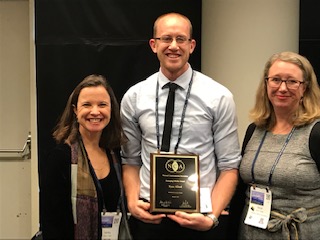Interpersonal Communication
Comm & Tech
My primary area of research explores the effects of new technologies on communication processes. Though the affordances of technology often serve to enable mediated encounters, they have also been shown to inhibit face-to-face expressivity. My goal is to help individuals navigate technological advancements in ways that build rather than destroy relationships.
Emotional Communication
Gratitude & Forgiveness
My secondary area of research explores prosocial emotions and their ability to fuel communication. Both gratitude and forgiveness have demonstrated unique ability to reduce stress, enhance positive affect, and induce relationship building behaviors. My goal is to create tools through which individuals may amplify feelings of gratitude and forgiveness.
Communication & Technology
Our initial study examined the simple effects of cell phone presence. In comparison to research suggesting the negative effects of using one’s cell phone while in the presence of others, we propose the “Mere Presence” hypothesis which notes the negative impact of having one’s phone visibly present during face-to-face conversations.

Our second study found that the “Mere Presence” hypothesis did not hold up during conversations with confederates. Because our confederates were trained to ignore their cell phone and display immediacy consistently across conditions, participants were not bothered by cell phone presence. Thus, is may be that phone presence inhibits communication via the sender, rather than the reciever, in such a way that immediacy perceptions are weakened.

My most recent study (2018) demonstrates the effects of cell phone addiction on willingness to communicate, mediated through anxiety.
Emotional Communication
Forgiveness

Gratitude and Expressive Writing
Longitudinal Gratitude


